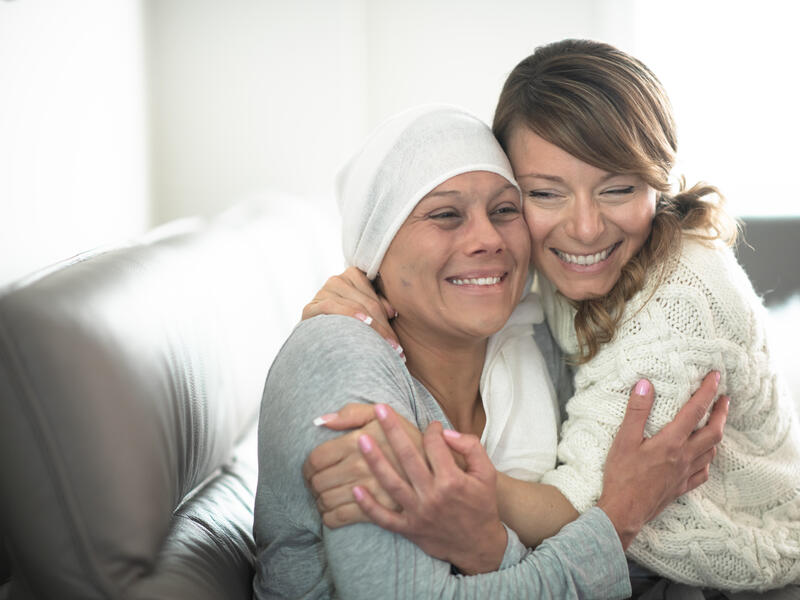A cancer diagnosis for you or a family member can be overwhelming. You may have endless questions. What can I do? Who do I ask about the options available to me?
In addition to your Sanford Health doctors, cancer patients are encouraged to lean into the health care organization’s experienced palliative care team.
“Every step of the way, we make sure that they feel like their questions are getting answered. They feel really heard,” said Jane Kroese, a nurse practitioner in palliative care.
Kroese says being available for patients and families during this challenging time can significantly improve their quality of life.
“That’s what’s great about palliative care,” Kroese said. “We have the time. We get to spend that time with patients and their support system, get to know them.”
That means getting to know if a piece of a patient’s health care puzzle is missing.
“Do you need caregiver support? Do you need advance care planning?” Kroese rattled off. “Do you need symptom management? Do you need spiritual support?
“We know that if any part of our whole person is suffering, it’s going to impact our health and our physical self.”
Palliative care while treating disease
Addressing those concerns immediately is a top priority for making sure that “whole person” is built up.
And palliative care resources are not just for patients with incurable cancers.
“All hospice is palliative care but not all palliative care is hospice. You can see us in the clinic and still be seeking active treatment for your chronic disease,” Kroese said.
Once you’ve engaged palliative care, Kroese says the team will be there to check in on you and even track hospitalizations.
“They’re at high risk of hospitalization from pneumonia, from dehydration, from other types of infections because their immune systems are down,” Kroese said.
Having that full picture allows palliative care staff to walk side-by-side with patients and families, bringing comfort.
“I just had a patient’s daughter say to me last week, ‘It doesn’t matter how this turns out. We know we have you to be with us until the end,’” Kroese said.
“To know that you really do make a difference in someone’s life, that’s the reason why we do our job.”
Caring through the whole journey
Kroese says it’s the right thing to do for patients, and it’s also available for their caregivers.
“That family member who’s caring for them carries a lot of stress, carries a lot of emotion of their own. They’re dealing with loss and grief as well. To really make sure that they feel supported through this,” Kroese said.
The goal is to reduce stress and trauma, allowing everyone to be the best they can be during a difficult period.
“We have so much extra time to really devote to the patients, to the families, and make sure that during this whole journey they’re covered,” Kroese said.
If interested in palliative care resources, patients can begin by asking their provider.
Sanford Health also offers pediatric palliative care services.
Learn more
- Fargo nurse, Air Force vet, finds calling in palliative care
- Cancer survivors find healing power in integrative health
- Podcast: Food and nutrition tips after cancer diagnosis
…
Posted In Cancer, Cancer Treatments, Symptom Management
